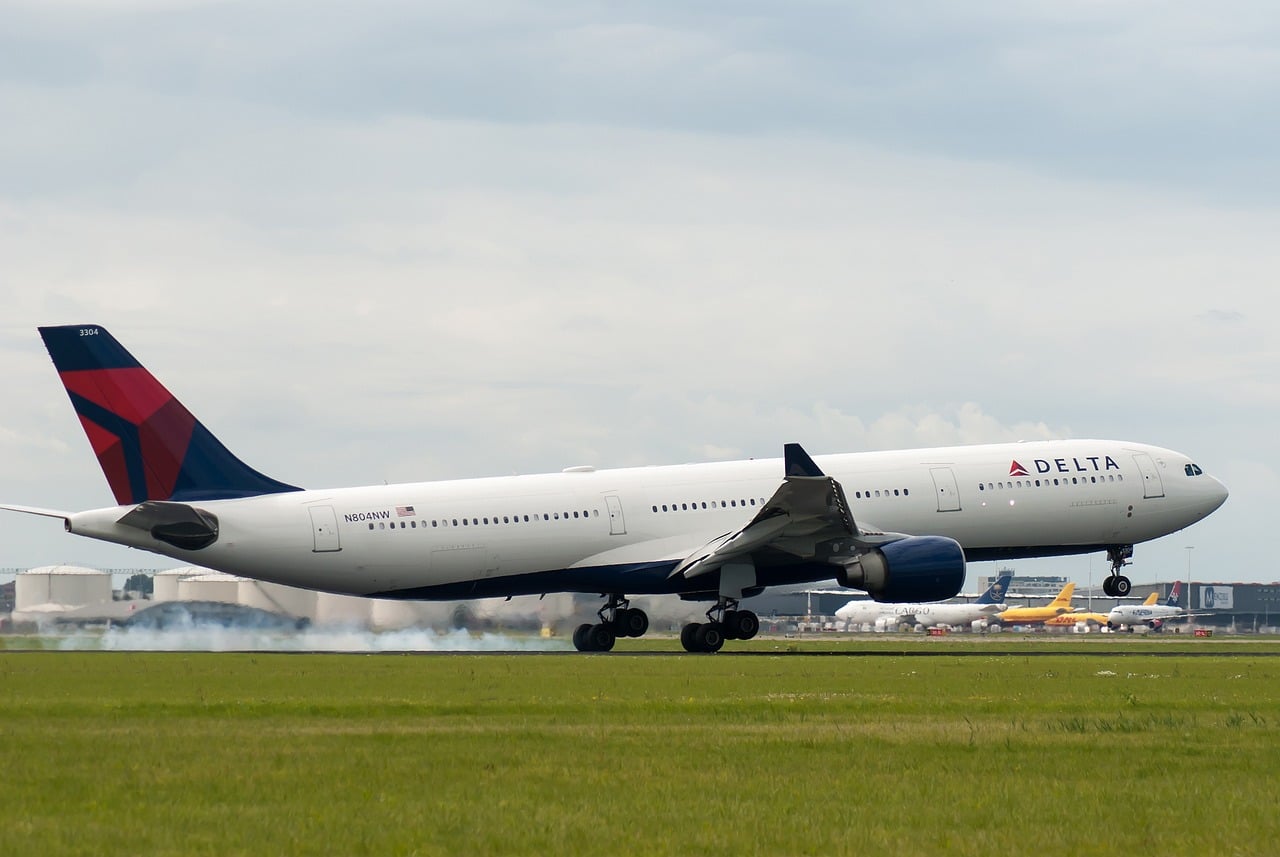Incorporation by Reference and Choice of Law
December 13, 2023

Image by Cor Gaasbeek from Pixabay
The choice-of-law clause written into the contract of carriage for Delta Air Lines, Inc. (Delta) states that the agreement “shall be governed by and enforced in accordance with the laws of the United States of America and, to the extent not preempted by Federal law, the laws of the State of Georgia.” In a recent case, a federal district court in Florida was called upon to determine the precise meaning of the phrase “laws of the United States of America” in this clause. Specifically, the court was asked to decide whether this phrase served to incorporate certain federal regulations into the contract by reference.
In this post, I first provide a brief summary of that decision. I then offer a few thoughts on whether choice-of-law clauses should generally be construed to incorporate regulations and statutes by reference.
Clampet v. Delta Air Lines, Inc.
In Clampet v. Delta Air Lines, the plaintiffs filed a class action against Delta in federal court in Florida (Judge Raag Singhal) alleging that Delta had failed to disclose certain fees that it received pursuant to an agreement with a company that sells travel insurance on the Delta website. The plaintiffs argued that such “hidden fee” arrangements are prohibited under 14 C.F.R. 399.85, which requires an airline to “prominently disclose on its website information on fees for all optional services that are available to a passenger purchasing air transportation.” The plaintiffs maintained that 14 C.F.R. 399.85 was incorporated directly into the contract of carriage by the choice-of-law clause language selecting “the laws of the United States of America.” Because this regulation was a part of the contract, the plaintiffs argued, they could bring a breach of contract claim against Delta for failing to properly disclose the fees.
The court rejected this argument. It held that a choice-of-law clause does not incorporate federal regulations by reference even when it specifically selects the laws of the United States. If the parties had wanted to incorporate one or more federal regulations into their agreement, the court reasoned, they would have used specific language stating that this was their intent. In support of this conclusion, the court cited to a bevy of other decisions that had similarly rejected the notion that passengers may bring breach of contract claims against air carriers when they fail to comply with federal regulations. In each case, the court held that the choice-of-law clause did not operate to incorporate the regulations into the contract.
Analysis
The court’s decision in Clampet is clearly correct. As a rule, federal regulations do not create a private right of action. The argument that a generic choice-of-law clause could upend this rule by incorporating the regulations directly into the body of the agreement, thereby giving rise to an action for breach of contract, is not persuasive.
There are, however, a number of cases where courts have stated that choice-of-law clauses do serve to incorporate all of the laws of the chosen jurisdiction into the contract by reference. The Williston treatise on contract law cites these cases in support of the proposition that “valid, applicable laws existing at the time of the making of a contract enter into and form a part of the contract as fully as if expressly incorporated in the contract.” This rule was inapplicable in Clampet because that case dealt with federal regulations rather than federal statutes. But what if the plaintiff had argued that a federal statute had been incorporated by reference via the choice-of-law clause in Delta’s contract of carriage? Would that case have come out any differently?
The answer may be yes. In Rabé v. United Air Lines, the Seventh Circuit held that the plaintiff—a French citizen who worked as a flight attendant—could sue United for breach of contract because (1) the choice-of-law clause in her employment contract stated that it would be governed by “applicable United States law,” and (2) this choice-of-law clause incorporated the Age Discrimination in Employment Act (ADEA) and Title VII of the Civil Rights Act of 1964 (Title VII) into the agreement by reference. The court reached this decision after it determined that the geographic scope of these federal statutes did not extend to aliens who worked outside of the United States. Since the plaintiff’s claims of discrimination would otherwise have had to be dismissed, the court apparently adopted the incorporation-by-reference theory to allow the plaintiff to assert her statutory claims through an action for breach of contract.
It seems implausible that the parties in Rabé truly believed that they were incorporating every U.S. statute into their employment agreement agreement via the choice-of-law clause. This is, however, how the Seventh Circuit interpreted the clause. The analysis in Rabé suggests that every contract prepared by Delta, United, or any other U.S. airline with a choice-of-law clause selecting the laws of the United States includes the more than 22 million words in the U.S. Code. If an airline acts in a manner inconsistent with any one of these rules, their counterparties seemingly have a valid breach of contract claim against them. The good news is that—per Clampet—the more than 105 million words in the Code of Federal Regulations are apparently not incorporated into these agreements by operation of the choice-of-law clause.
Conclusion
I have argued elsewhere that the rule set forth in Rabé—that choice-of-law clauses incorporate all of the law of the selected jurisdiction into the agreement by reference—should be set aside. In creating a breach of contract claim for every statutory violation, including statutes whose geographic scope is otherwise limited, this rule gives rise to liabilities that were not foreseeable at the time of contracting. Going forward, courts should think long and hard about whether to continue this rule… particularly in light of the compelling arguments against incorporation articulated in Clampet.